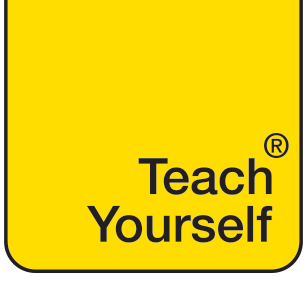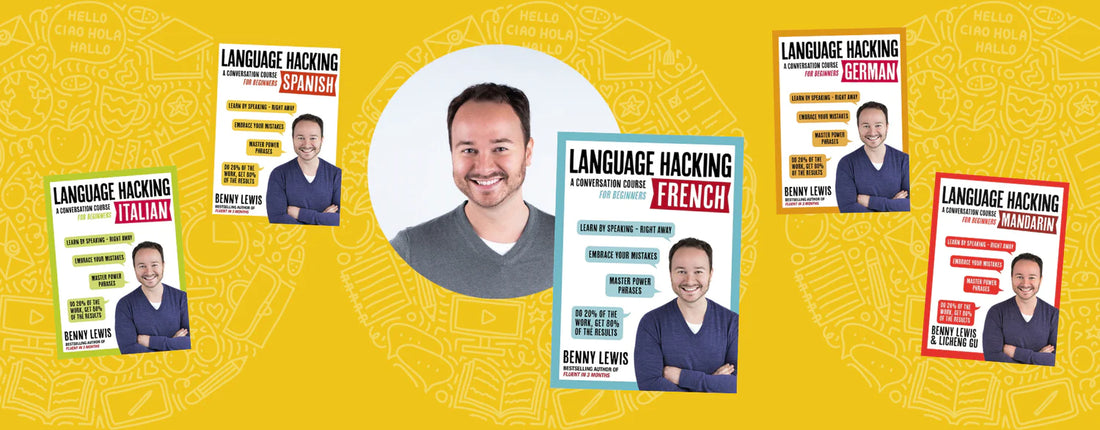Benny Lewis shares the second part of his top 10 key language hacks from his bestselling title, Language Hacking: French. If you've ever felt a little bit overwhelmed with learning French or any new language, Language Hacking might be the answer. It's a completely different approach to language learning and gives you the most versatile phrases and most effective shortcuts to help you get fluent faster. You can read Part 1 here.
- Sound More Fluent with Conversation Connectors
Conversation connectors are words or short phrases that we all use when we want to soften what we say, elaborate on an idea, or transition smoothly between topics in a conversation.
They make conversations sound more natural and keep them from fizzling out prematurely.
Learn these conversation connectors and watch how much better your French conversations flow:
- franchement (frankly speaking)
- entre nous (between us)
- j'ai l'impression que (it seems to me that)
- c'est pourquoi (and that is why)
- d'autre part (on the other hand)
You’ll find plenty more conversational connectors inside Language Hacking French.
- Time Travel – Talk About the Past and Future Using the Present Tense
French is well-known for its common use of the present tense even when talking about the past. Documentary films, for example, will narrate historical events using the present tense. People also do it every day when telling stories and anecdotes.
You can do the same thing when talking about the past and future in your French conversations.
For a story in the past, start by giving the setting (“So last week, I’m reading in the park, minding my own business…”), and then tell the rest of your story using the present tense.
For the future, you can just add a time indicator to your sentence to show when the action will take place. For example:
- “J’appelle mon père dans deux heures” (“I’m calling my father in two hours”)
- “Je vais au Mexique en décembre” (“I’m going to Mexico in December”)
- The Rephrasing Technique for Talking Your Way Through Complicated Sentences
Even in your native language, you might struggle from time to time to express an idea precisely the right way. This is even more of a struggle in French, a language you don’t yet speak fluently.
Don’t worry - the elaborate, nuanced phrases you’re used to in your native language will come eventually in French. But for now, just let it go. Communication should be your first priority. Embellishing what you say is secondary.
Figure out the main idea of your sentence and say that instead. For example, if you want to say, “I’m looking for a flatmate that speaks French and wants to rent the room for at least 12 months”, you could simplify it to “J’ai besoin d’un coloc. 12 mois. On va parler français ensemble !” (I need a flatmate. 12 months. We’ll speak French together!”).
- Make the Most of Hidden Moments to Get French Immersion for the Long Term
There’s an old saying that goes something like this: “To establish just how much time you waste, get someone to follow you around all day and watch what you’re doing.”
Instead of taking such a drastic step, simply take a good hard look at your typical day. Add up all the “idle minutes” you find yourself with. Riding the bus, waiting for a slow lift, standing in line in the supermarket, zoning out during TV commercials (and watching a lot of TV in the first place!)... These are all time-killers, and they can really add up.
Take advantage of these hidden moments to squeeze in some French practice. Pull out your phone and study some French flashcards. Listen to a French song or read a page or paragraph of a French book.
Are you genuinely short on time some days? Then change your browser or operating system to French. That way you’ll get exposure to the language every time you use your computer.
- Develop a Cheat Sheet to Go into ‘Autopilot’ During Your First Conversation
Too many language learners delay the important step of actually speaking with natives. They think: “I won’t know what to say!”, “What if the other person asks me a question I don’t understand?” and “I’m too nervous”.
These feelings are all completely normal.
A cheat sheet will help you with all of them. Write down the phrases that you want to use during your conversation, and you’ll always have something to say. Make a list of “survival phrases” so you can ask the other person to repeat what they just said, or to tell them that you don’t understand. Having these phrases handy will automatically make you a lot less nervous.
I like to divide my cheat sheet into four sections:
- Essentials: “Hello”, “How are you?”, “I’m well, thank you”, “Goodbye”, as well as typical introductory questions like “Where do you work?”, “Where are you from?”, etc.
- Survival phrases: I’m sorry, I don’t understand”, “Could you please repeat that?”, “Could you type that out?” etc.
- Questions you plan to ask: “What do you do in your free time?”, “What’s your city like?”, etc.
- Any material that you want to practise saying: for example, “me-specific” phrases like your hobbies, your job, or any upcoming plans you have.
Keep the cheat sheet handy during your conversation. Refer to it as often as you need to, and Voilà! You’ve just had your first real-life conversation with a native French speaker!
Here's an article about how you can create your own cheat sheet.
Want to Speak French - the Faster Way?
I hope you’ve found these French hacks helpful.
Language Hacking French takes you step-by-step through speaking French.
From the day you pick up the course, you’ll learn how to speak French in real life situations.
One happy learner through Language Hacking French wrote:
Prior to this, my French was nonexistent when it came to speaking. I wouldn't speak French to anyone. But this book has really given me the confidence to speak French with its useful hacks and the personal scripts that you develop throughout the book.
You can browse the full series here.

